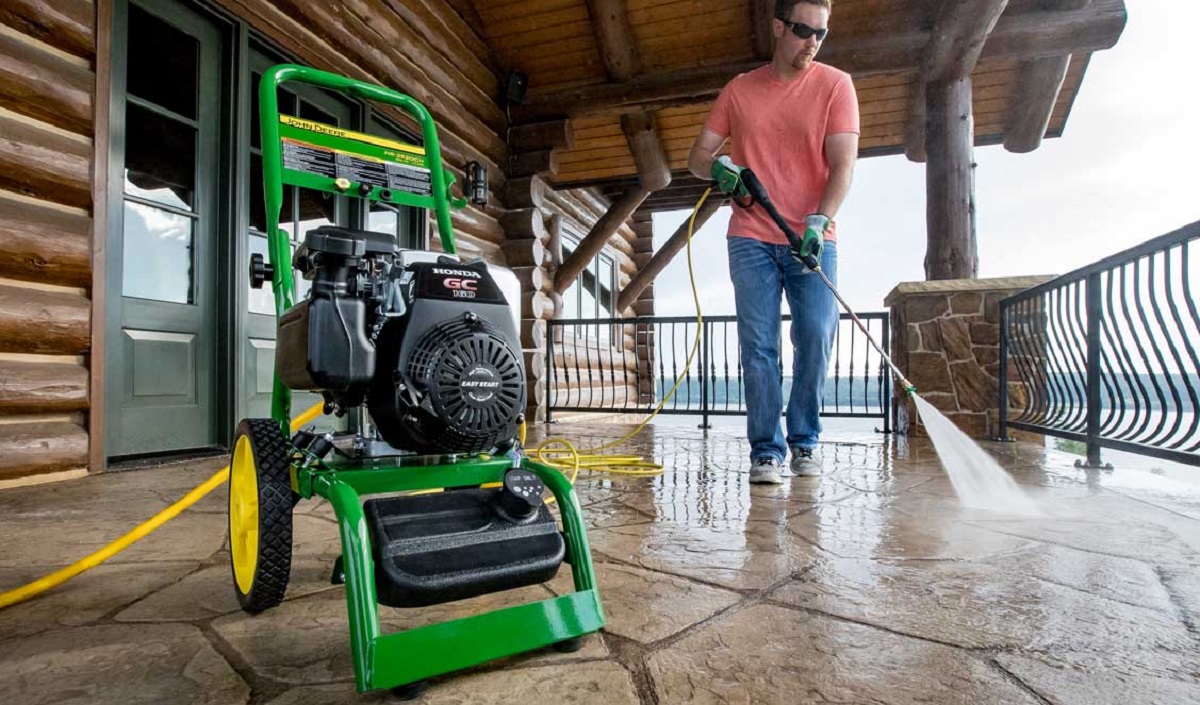

Articles
How To Choose A Pressure Washer
Modified: October 27, 2024
Looking for articles on how to choose a pressure washer? Discover expert tips and advice for finding the perfect pressure washer for your needs.
(Many of the links in this article redirect to a specific reviewed product. Your purchase of these products through affiliate links helps to generate commission for Storables.com, at no extra cost. Learn more)
Introduction
Welcome to the world of pressure washers, where cleaning becomes a breeze! Whether you’re looking to spruce up your outdoor spaces or tackle tough stains and grime, a pressure washer can be a powerful tool in your cleaning arsenal. But with so many options available, how do you choose the right one for your needs?
In this article, we’ll guide you through the process of choosing a pressure washer, from understanding the different types to evaluating the essential features. By the end, you’ll be equipped with the knowledge to make an informed decision and find the perfect pressure washer for your cleaning projects.
Before diving into the specifics, let’s briefly explore what a pressure washer is and how it works. At its core, a pressure washer is a device that uses high-pressure water to clean surfaces. It relies on a motor or engine to power a pump, which pressurizes the water and sprays it out through a nozzle at high velocity.
Pressure washers come in various types, with the two most common options being electric and gas-powered models. Electric pressure washers are typically more lightweight and portable, making them ideal for smaller cleaning tasks around the house. On the other hand, gas pressure washers offer greater power and are better suited for heavy-duty cleaning of large areas or commercial use.
One of the key factors to consider when choosing a pressure washer is the PSI, or pounds per square inch, which reflects the water pressure. Higher PSI means more force, perfect for removing stubborn dirt and grime. However, it’s important to strike a balance as excessively high PSI can damage delicate surfaces.
Another important consideration is the GPM, or gallons per minute, which indicates the water flow rate. Higher GPM facilitates quicker cleaning, as it delivers more water to the surface. The ideal PSI and GPM combination will depend on the specific cleaning tasks you have in mind.
Nozzle options also play a crucial role in pressure washer efficiency. Different nozzles produce varying spray patterns, from pinpoint streams for concentrated cleaning to wider fan sprays for larger areas. Having a range of nozzle choices can enhance the versatility of your pressure washer.
While the basic functionality of a pressure washer is essential, there are additional features to consider. Some models offer adjustable pressure settings, allowing you to customize the level of cleaning power. Others may include built-in detergent tanks for tackling tough stains or wheels for easy maneuverability.
Durability and warranty are important factors to assess when choosing a pressure washer, as a well-built machine can last for years of reliable use. Checking the warranty coverage and customer reviews can give you insight into the overall quality and lifespan of the product.
Budget is also a significant consideration. Pressure washer prices can vary widely, so it’s essential to establish a budget and compare different models within your price range. Keep in mind that while cheaper options may seem attractive, they might lack durability and performance.
Last but not least, seeking professional recommendations is a wise approach. Talking to experts or consulting online resources that provide detailed reviews and comparisons can help you make an informed decision based on your specific cleaning needs.
With these considerations in mind, you’re well on your way to choosing the perfect pressure washer. So, let’s dive deeper into each aspect and unravel the world of pressure washing. Get ready to transform your cleaning routine and achieve remarkable results!
Key Takeaways:
- Choose the Right Pressure Washer
Consider PSI, GPM, nozzle options, additional features, durability, warranty, budget, and seek professional recommendations to make an informed decision and achieve efficient and effective cleaning results. - Balance Power and Versatility
Select an electric pressure washer for light to medium-duty tasks and a gas pressure washer for heavy-duty cleaning. Balance power, durability, and budget to find the perfect cleaning tool for your specific needs.
Read more: How To Adjust Pressure On Pressure Washer
Understanding Pressure Washers
Before delving deeper into the world of pressure washers, it’s important to have a solid understanding of how these machines work and the benefits they offer. A pressure washer, also known as a power washer, is a versatile cleaning tool that utilizes high-pressure water to blast away dirt, grime, and other stubborn debris from various surfaces.
The primary components of a pressure washer are the motor or engine, the pump, the high-pressure hose, and the nozzle. The motor or engine powers the pump, which pressurizes the water from a garden hose or water source before expelling it through the nozzle at high velocity.
There are several advantages to using a pressure washer for your cleaning projects. Firstly, pressure washers are incredibly efficient and save both time and effort. The high-pressure water stream can clean surfaces much faster compared to traditional cleaning methods such as scrubbing with a brush or using a sponge. This makes pressure washers particularly valuable for large surface areas or any cleaning task that requires a thorough and speedy approach.
Additionally, pressure washers are highly effective at removing tough stains and grime. The forceful water stream easily dislodges dirt, mold, mildew, oil, grease, and other stubborn substances that may be deeply embedded in surfaces. Whether you’re dealing with a dirty patio, grimy siding, or a stained driveway, a pressure washer can make light work of even the most challenging cleaning tasks.
Another notable benefit of pressure washers is their versatility. With the ability to adjust the pressure and choose from various nozzle options, you can tailor the cleaning process to suit different surfaces and requirements. From delicate surfaces such as vehicles and windows to tougher surfaces like concrete and stone, a pressure washer can be adapted to meet a wide range of cleaning needs.
Furthermore, pressure washers can help improve the overall appearance and lifespan of surfaces. Regularly cleaning outdoor spaces, such as decks, fences, and patios, not only enhances their visual appeal but also helps prevent deterioration and prolongs their lifespan. By removing dirt, debris, and contaminants, pressure washers can effectively maintain the integrity and longevity of various surfaces.
When using a pressure washer, it’s crucial to follow safety guidelines to prevent accidents or equipment damage. It’s important to wear protective gear, such as safety goggles and gloves, to shield yourself from high-pressure water and debris. Additionally, be cautious when operating the machine around electrical outlets and delicate surfaces, and always refer to the manufacturer’s instructions for proper usage.
Now that you have a better understanding of the benefits and functionality of pressure washers, it’s time to explore the different types available in the market. Whether you’re a homeowner looking for a compact and efficient electric pressure washer or a professional in need of a robust gas-powered model, there’s a pressure washer suited to meet your specific needs.
In the next section, we will delve into the different types of pressure washers and help you determine which one is the most suitable for your cleaning tasks.
Types of Pressure Washers
When it comes to pressure washers, there are two main types: electric pressure washers and gas pressure washers. Each type has its own set of advantages and considerations, making it important to understand their differences in order to choose the right one for your cleaning needs.
Electric Pressure Washers: Electric pressure washers are powered by electricity and are typically more compact and lightweight compared to their gas-powered counterparts. These machines are a popular choice for homeowners and individuals who require a portable and user-friendly cleaning solution.
One of the key advantages of electric pressure washers is their ease of use. They start with a simple flip of a switch and don’t require any fuel or oil to operate. Additionally, electric pressure washers are generally quieter compared to gas models, making them more suitable for residential areas where noise restrictions may apply.
Electric pressure washers are typically available in a range of PSI options, allowing you to choose the appropriate level of pressure for your specific cleaning tasks. They are ideal for light to medium-duty cleaning, such as washing cars, cleaning outdoor furniture, or removing dirt and grime from decks and patios.
Another benefit of electric pressure washers is their low maintenance requirements. They don’t require regular oil changes or spark plug replacements, making them more cost-effective in the long run. However, it’s important to note that electric pressure washers may have a shorter lifespan compared to gas models.
Gas Pressure Washers: Gas pressure washers, as the name suggests, are powered by gas, typically gasoline. These machines are known for their robust performance and are commonly used for heavy-duty cleaning tasks or in commercial settings.
Gas pressure washers deliver higher water pressure compared to electric models, making them better suited for tackling tough stains, hardened dirt, and large surface areas. They offer greater versatility in terms of pressure settings and nozzle options, allowing you to customize the cleaning process to meet your specific needs.
One of the primary advantages of gas pressure washers is their increased mobility. Since they don’t rely on an electrical outlet, you can easily move them around without being limited by a power cord. This makes gas pressure washers ideal for outdoor cleaning projects or areas without easily accessible electricity.
However, there are a few considerations when it comes to gas pressure washers. They tend to be heavier and bulkier compared to electric models, which can make them less maneuverable and more challenging to transport. Additionally, gas pressure washers require regular maintenance, including oil changes and spark plug replacements, to ensure optimal performance.
Gas pressure washers are a popular choice for professionals or individuals who regularly tackle large-scale cleaning projects, such as cleaning driveways, removing graffiti, or preparing surfaces for painting. They offer high power and performance, ensuring efficient and effective results.
To choose the right type of pressure washer for your needs, consider the scale of your cleaning tasks, the mobility requirements, and the power level required. Electric pressure washers are ideal for lighter tasks and residential use, while gas pressure washers are better suited for heavy-duty cleaning or commercial applications.
Now that you’ve gained insight into the different types of pressure washers, in the next section, we will explore important factors to consider when selecting the ideal PSI (pounds per square inch) for your pressure washer.
Electric Pressure Washers
Electric pressure washers are a popular choice for homeowners and individuals who are looking for a compact and user-friendly cleaning solution. These machines are powered by electricity and offer several advantages that make them well-suited for light to medium-duty cleaning tasks.
One of the key advantages of electric pressure washers is their ease of use. They typically have a simple start-up process, requiring only the flip of a switch. There’s no need for fuel or oil, making them convenient and hassle-free. Additionally, electric pressure washers are generally quieter compared to gas models, making them more suitable for residential areas where noise restrictions may apply.
Electric pressure washers come in various PSI (pounds per square inch) options, allowing you to choose the level of pressure that suits your specific cleaning tasks. Lower PSI models are suitable for more delicate surfaces like cars, outdoor furniture, or windows, while higher PSI models are better for tougher cleaning jobs like removing dirt, mold, or mildew from decks or driveways.
Another advantage of electric pressure washers is their lightweight and compact design. They are typically smaller and easier to maneuver compared to gas models. This makes them more portable and convenient, particularly for homeowners who need to move around their property or store the machine in a limited space.
Electric pressure washers are also known for their low maintenance requirements. They don’t require frequent oil changes or spark plug replacements like gas models do. This not only saves you time but also reduces long-term maintenance costs.
However, it’s important to note that electric pressure washers generally have a shorter lifespan compared to their gas-powered counterparts. This is because they are designed for lighter use and may not have the same durability and endurance as gas models. It’s important to factor in your cleaning needs and frequency when considering the longevity of an electric pressure washer.
When shopping for an electric pressure washer, consider the following factors:
PSI Range: Determine the appropriate PSI range for your cleaning tasks. Higher PSI provides more pressure for tougher cleaning jobs, while lower PSI is suitable for more delicate surfaces.
GPM (Gallons per Minute): Consider the water flow rate, measured in GPM, to determine how quickly the pressure washer can cover an area. Higher GPM can deliver more water, resulting in faster cleaning.
Nozzle Options: Check if the pressure washer comes with a variety of nozzle options. Different nozzles produce different spray patterns, allowing you to customize the cleaning process for different surfaces and tasks.
Additional Features: Look for additional features that can enhance the functionality and convenience of the pressure washer. This may include features like adjustable pressure settings, onboard detergent tanks, hose reels, or wheels for easy maneuverability.
Budget: Consider your budget and compare different models within your price range. Generally, electric pressure washers are more affordable than gas models, but prices can vary based on the brand, features, and specifications.
Electric pressure washers are an excellent choice for homeowners and individuals who need a reliable and efficient cleaning tool for smaller or medium-sized tasks. By considering your cleaning needs, budget, and specifications, you can find an electric pressure washer that suits your requirements and helps you achieve remarkable cleaning results.
In the next section, we will explore gas pressure washers and their benefits for heavy-duty cleaning tasks.
Gas Pressure Washers
Gas pressure washers are known for their robust performance and are a popular choice for heavy-duty cleaning tasks or in commercial settings. These machines are powered by gasoline and offer several advantages that make them well-suited for demanding cleaning projects.
One of the primary advantages of gas pressure washers is their high power output. They deliver greater water pressure compared to electric models, making them ideal for tackling tough stains, hardened dirt, and large surface areas. This increased power allows for more efficient and effective cleaning, saving you time and effort.
Gas pressure washers offer greater versatility in terms of pressure settings and nozzle options. They typically have a wider range of pressure levels, allowing you to customize the cleaning process to suit different surfaces and requirements. Additionally, gas pressure washers often come with multiple nozzle options, enabling you to adjust the spray pattern for specific cleaning tasks.
Mobility is another key advantage of gas pressure washers. Since they don’t rely on an electrical outlet, you can easily move them around without being limited by a power cord. This makes gas pressure washers ideal for outdoor cleaning projects or areas without easily accessible electricity.
Gas pressure washers are also known for their durability and long lifespan. They are built to withstand heavy use and are generally more rugged in construction compared to electric models. With proper maintenance and care, a gas pressure washer can offer many years of reliable performance, making it a worthwhile investment.
However, there are a few considerations when it comes to gas pressure washers. They tend to be heavier and bulkier compared to electric models, which can make them less maneuverable and more challenging to transport. Gas pressure washers also require regular maintenance, including oil changes and spark plug replacements, to ensure optimal performance.
Gas pressure washers are a popular choice for professionals or individuals who regularly tackle large-scale cleaning projects. They are particularly well-suited for commercial use, such as cleaning decks, driveways, and large outdoor areas. The high power and performance of gas pressure washers ensure faster and more effective cleaning, even in the toughest conditions.
When shopping for a gas pressure washer, consider the following factors:
PSI Range: Determine the appropriate PSI range for your cleaning tasks. Higher PSI provides more pressure for tougher cleaning jobs, while lower PSI allows for more versatility and control.
GPM (Gallons per Minute): Consider the water flow rate, measured in GPM, to determine how quickly the pressure washer can cover an area. Higher GPM can deliver more water, resulting in faster cleaning.
Nozzle Options: Check if the pressure washer comes with a variety of nozzle options to adjust the spray pattern for specific cleaning tasks.
Mobility and Portability: Evaluate the size, weight, and wheels of the gas pressure washer to ensure it can be easily transported and maneuvered.
Maintenance: Consider the maintenance requirements, such as oil changes and spark plug replacements, and factor in the time and cost associated with them.
Budget: Consider your budget and compare different models within your price range. Gas pressure washers are typically more expensive than electric models due to their higher power output and durability.
Gas pressure washers are a valuable cleaning tool for those who require maximum power and performance. By considering your cleaning needs, budget, and specifications, you can find a gas pressure washer that suits your requirements and helps you achieve exceptional cleaning results.
In the next section, we will dive into the factors to consider when choosing the right PSI (pounds per square inch) for your pressure washer.
Read more: How To Choose A Washer And Dryer
Choosing the Right PSI
When selecting a pressure washer, one of the most important factors to consider is the PSI, which stands for pounds per square inch. The PSI measurement reflects the water pressure that the pressure washer can generate, and choosing the right PSI is crucial to ensure effective and safe cleaning.
The appropriate PSI for your pressure washer will depend on the specific cleaning tasks you have in mind. Higher PSI indicates greater water pressure, which is suitable for tackling tough stains, embedded dirt, and stubborn grime. However, it’s important to note that excessively high PSI can also cause damage to certain surfaces, particularly more delicate materials like wood or paint.
Here are some general guidelines to help you choose the right PSI for your cleaning needs:
1. Light-Duty Cleaning: If your cleaning tasks involve gentler surfaces and lighter dirt or debris, such as washing a car or cleaning outdoor furniture, a pressure washer with a PSI range of 1000 to 2000 is typically sufficient.
2. Medium-Duty Cleaning: For moderately dirty surfaces, such as removing dirt and grime from decks, patios, or fences, a pressure washer with a PSI range of 2000 to 2800 is recommended.
3. Heavy-Duty Cleaning: Tough stains, caked-on mud, or deep-seated grime often require higher water pressure. If you’re tackling these types of cleaning tasks, consider a pressure washer with a PSI range of 2800 to 3500 or higher.
Keep in mind that the PSI alone may not be the sole indicator of a pressure washer’s cleaning ability. The combination of PSI and GPM (gallons per minute), which determines the water flow rate, is equally important. A high PSI without sufficient GPM may result in a weak and ineffective cleaning performance.
It’s crucial to strike a balance between sufficient pressure and the appropriate flow rate for your specific cleaning tasks. For example, a higher GPM can help rinse away loosened dirt and debris more efficiently, speeding up the overall cleaning process.
It’s also important to consider the type of surfaces you’ll be cleaning. More delicate materials like wood, paint, or fragile surfaces may require lower PSI to avoid damage. On the other hand, harder surfaces like concrete, brick, and metal can tolerate higher pressure.
When in doubt, it’s advisable to start with a lower PSI and gradually increase the pressure as needed, taking care to test the pressure washer on a small, inconspicuous area before proceeding to larger surfaces.
Ultimately, the right PSI for your pressure washer will depend on the cleaning tasks you need to tackle and the surfaces you’ll be working on. By understanding the guidelines and considering the factors mentioned above, you can make an informed decision and choose a pressure washer with the appropriate PSI to achieve effective and safe cleaning results.
In the next section, we will explore the importance of determining the ideal GPM (gallons per minute) for your pressure washer.
Determining the Ideal GPM
When selecting a pressure washer, it’s essential to consider not only the PSI (pounds per square inch) but also the GPM (gallons per minute). The GPM measurement represents the water flow rate and plays a crucial role in determining the efficiency and effectiveness of your cleaning tasks.
The ideal GPM for your pressure washer will depend on the specific cleaning tasks you have in mind. A higher GPM indicates a greater volume of water flowing through the pressure washer, which can result in faster and more efficient cleaning. However, it’s important to strike a balance and consider your specific cleaning needs to avoid wasting water unnecessarily.
Here are some guidelines to help you determine the ideal GPM for your pressure washer:
1. Light-Duty Cleaning: For tasks that involve smaller surface areas or less stubborn dirt, a pressure washer with a lower GPM, ranging from 1.2 to 2.0, is generally sufficient. This is suitable for tasks like washing a car, cleaning patio furniture, or rinsing off light dirt and debris.
2. Medium-Duty Cleaning: For more extensive cleaning projects, such as removing moderate dirt and grime from decks, driveways, or fences, a pressure washer with a GPM range of 2.0 to 2.5 is recommended. This allows for a higher water flow rate, improving cleaning efficiency and reducing overall cleaning time.
3. Heavy-Duty Cleaning: When dealing with tough stains, embedded dirt, or large surface areas, a pressure washer with a higher GPM, ranging from 2.5 to 4.0 or above, is ideal. This provides a high volume of water, allowing for more thorough and faster cleaning of stubborn grime.
It’s important to note that the GPM measurement works in conjunction with the PSI rating of the pressure washer. The PSI determines the water pressure, while the GPM determines the water flow rate. The combination of the two factors is crucial to achieving optimal cleaning results.
Higher GPM can help rinse away loosened dirt and debris more efficiently, while higher PSI provides the necessary force to remove tough stains. The right balance between the two will depend on the specific cleaning tasks and surfaces you’ll be working with.
In addition to the cleaning efficiency, it’s essential to consider water conservation and the availability of water resources. Using a pressure washer with a higher GPM will consume more water, so it’s crucial to strike a balance between efficient cleaning and responsible water usage.
By determining the ideal GPM for your pressure washer, you can ensure that you have the appropriate water flow rate to achieve efficient and effective cleaning results. Consider the size of the cleaning area, the level of dirt and grime you need to remove, and your water conservation goals to make an informed decision.
In the next section, we will explore the importance of assessing the nozzle options available for your pressure washer.
When choosing a pressure washer, consider the PSI (pounds per square inch) and GPM (gallons per minute) ratings to ensure it meets your cleaning needs. Higher PSI and GPM provide more power for tough jobs.
Assessing the Nozzle Options
One of the key factors to consider when choosing a pressure washer is the nozzle options available. Nozzles play a crucial role in determining the spray pattern and intensity of the water stream, allowing you to customize your cleaning process for different surfaces and tasks.
Pressure washers typically come with a set of interchangeable nozzles, each designed to provide a different spray pattern. Here are the common nozzle options and their corresponding spray patterns:
1. Red Nozzle (0-Degree): This nozzle produces a concentrated, narrow stream of water. It’s ideal for targeting stubborn stains or hard-to-reach areas. However, caution should be exercised when using this nozzle, as the concentrated stream can cause damage to surfaces if not used properly.
2. Yellow Nozzle (15-Degree): The yellow nozzle provides a slightly wider spray pattern compared to the red nozzle. It’s suitable for removing tough dirt and grime from surfaces, such as cleaning sidewalks, driveways, or outdoor furniture.
3. Green Nozzle (25-Degree): The green nozzle produces a medium-width spray pattern, making it versatile for various cleaning tasks. It works well for general-purpose cleaning, such as washing vehicles, rinsing off dirt from decks or patios, or cleaning fences.
4. White Nozzle (40-Degree): The white nozzle delivers a wide fan spray pattern, covering a larger surface area. It’s perfect for delicate surfaces like windows, siding, or painted surfaces, where a more gentle and wider spray is needed to avoid damage.
5. Black Nozzle (Soap Nozzle): The black nozzle is specifically designed for applying detergent or soap. It creates a low-pressure stream, allowing the detergent to mix with the water and effectively loosen dirt and grime from surfaces. It’s an essential nozzle for tasks that involve applying cleaning solutions or washing vehicles.
Assessing the nozzle options is crucial to ensure efficient and effective cleaning. Different surfaces and tasks may require varying spray patterns and intensity. By using the appropriate nozzle for each specific cleaning job, you can optimize the cleaning process and achieve better results while preventing potential damage to surfaces.
When evaluating the nozzle options, consider the following factors:
Cleaning Task: Determine the specific cleaning tasks you’ll be performing and identify the spray pattern that suits them best. For example, a narrow stream (red nozzle) is suitable for stubborn stains, while a wider fan spray (white nozzle) is ideal for delicate surfaces.
Surface Sensitivity: Consider the sensitivity of the surfaces you’ll be cleaning. More fragile or painted surfaces may require a wider and gentler spray pattern to prevent damage, while tougher surfaces can tolerate a more focused stream.
Versatility: Look for pressure washer models that offer a range of nozzle options, giving you the flexibility to adjust the spray pattern for different cleaning tasks. Having multiple nozzles allows you to customize the pressure washer’s performance to suit your specific needs.
Remember, safety should always be a priority when using pressure washers. Be cautious when using nozzles with narrow spray patterns (red or yellow) as they can cause injury or damage if not handled properly. Always read the manufacturer’s instructions and take appropriate precautions to avoid accidents.
By assessing and utilizing the nozzle options effectively, you can optimize the performance of your pressure washer and achieve exceptional cleaning results across a variety of surfaces and tasks.
In the next section, we will explore additional features to consider when choosing a pressure washer.
Considering Additional Features
When choosing a pressure washer, it’s important to consider the additional features that can enhance its performance and make your cleaning tasks more efficient and convenient. These features can vary from model to model, so it’s essential to evaluate them based on your specific needs and preferences.
Here are some additional features to consider when selecting a pressure washer:
Adjustable Pressure Settings: Some pressure washers offer adjustable pressure settings, allowing you to customize the cleaning power according to the task at hand. This feature can be particularly useful when dealing with delicate surfaces or when you need to switch between different cleaning requirements.
Detergent Tanks or Siphoning Tubes: Look for pressure washers that have built-in detergent tanks or siphoning tubes. These features allow you to add cleaning solutions or detergents to the pressure washer, enhancing its ability to remove tough stains and grime. Having an integrated detergent tank eliminates the need for separate containers or manual mixing.
Hose Reels: Pressure washers equipped with hose reels offer convenient storage and organization for the high-pressure hose. This feature keeps the hose tangle-free and prevents damage, allowing for quick and easy setup and clean-up. It’s particularly beneficial when you need to move the pressure washer frequently or store it in a compact space.
Wheels or Cart: Consider the mobility options of the pressure washer. Models with wheels or a cart design allow for easy transportation, especially if you need to move the machine around your property or between different cleaning areas. This feature reduces the strain on your back and makes maneuvering the pressure washer more effortless.
Trigger Lock: A trigger lock feature can be useful for longer cleaning sessions when you want to reduce hand fatigue. It allows you to lock the trigger in the “on” position, so you don’t have to continuously squeeze it. However, it’s important to use this feature with caution and only when necessary to prevent accidental spray or misuse.
Noise Reduction Technology: Some pressure washers are designed with noise reduction technology to minimize the loud operation noise. This can be beneficial if you live in a noise-sensitive area or wish to maintain a quieter environment while cleaning.
Quick-Connect System: Look for pressure washers with a quick-connect system for the nozzles and attachments. This feature enables fast and effortless swapping of nozzle tips or accessories, saving you time and hassle when you need to adjust the cleaning process for different tasks.
Ergonomic Design: Consider the ergonomics and comfort features of the pressure washer, such as cushioned handles or an adjustable spray wand. These elements can make prolonged cleaning sessions more comfortable and reduce fatigue on your hands and arms.
It’s important to note that not all additional features may be necessary for every cleaning task. Evaluate your specific needs and prioritize the features that will enhance your cleaning experience and efficiency the most.
When comparing different pressure washer models, make a checklist of the additional features you desire and consider if they align with your budget and cleaning requirements. Remember to balance the functionality and convenience of the features with the overall performance and quality of the pressure washer.
By selecting a pressure washer with the right additional features, you can streamline your cleaning process, save time and effort, and achieve optimum results in your cleaning projects.
In the next section, we will discuss the importance of evaluating the durability and warranty of a pressure washer.
Read more: How To Buy A Pressure Washer
Evaluating Durability and Warranty
When investing in a pressure washer, it’s essential to consider the durability and warranty offered by the manufacturer. Assessing these factors will help ensure that you select a quality product that will withstand the demands of your cleaning tasks and provide long-lasting performance.
Durability is a critical aspect to consider when evaluating a pressure washer. You want a machine that can withstand regular use and handle various cleaning tasks without experiencing premature wear or breakdowns. Look for pressure washers that are constructed with high-quality materials, such as sturdy housing and durable components, to ensure their longevity.
Reading customer reviews and checking the reputation of the brand can provide valuable insights into the durability of the pressure washer. Look for feedback on the overall build quality, resistance to impact or vibration, and resistance to corrosion or rust, especially if you plan to use the pressure washer in outdoor or harsh environments.
In addition to durability, it’s crucial to consider the warranty provided by the manufacturer. A warranty is an assurance from the manufacturer that they stand behind their product and will address any potential defects or issues within a specified period of time.
When evaluating the warranty, pay attention to the following aspects:
Coverage: Understand what components or parts of the pressure washer are covered by the warranty. Check if it includes the motor, pump, hoses, or other essential parts that are prone to wear or potential damage.
Duration: Take note of the length of the warranty period. The warranty duration can vary significantly, ranging from a few months to several years. Generally, longer warranty periods indicate greater confidence in the product’s quality and durability.
Terms and Conditions: Familiarize yourself with any specific terms and conditions associated with the warranty. Pay attention to any maintenance requirements, recommended usage guidelines, or limitations that may affect the validity of the warranty. Adhering to these terms will ensure that your warranty remains valid throughout the specified period.
Customer Support: Consider the reputation and responsiveness of the manufacturer’s customer support team. In the event of any issues, having reliable and efficient customer support can make a significant difference in resolving problems and providing a satisfactory experience.
Evaluating the durability and warranty of a pressure washer ensures that you are making an informed decision and investing in a reliable and long-lasting cleaning tool. A durable pressure washer and a comprehensive warranty provide peace of mind, significantly reducing the risk of unexpected repairs or replacements.
Finally, it’s worth noting that regular maintenance and proper usage play a vital role in preserving the durability and performance of your pressure washer. Adhering to the manufacturer’s recommended maintenance schedule and following the operating instructions will maximize the lifespan of your machine.
In the next section, we will discuss the importance of comparing prices and budgeting when selecting a pressure washer.
Comparing Prices and Budgeting
When it comes to choosing a pressure washer, comparing prices and budgeting is an essential step in the decision-making process. By carefully considering your budget and evaluating the prices of different models, you can ensure that you make a cost-effective purchase while still meeting your cleaning needs.
Pressure washer prices can vary significantly depending on factors such as brand, power, features, and overall quality. Higher-end models with more power and advanced features tend to be more expensive, while basic or entry-level models are generally more affordable.
Before starting your search, establish a budget range that you are comfortable with and consider how often and for what purposes you will be using the pressure washer. This will help guide your decision and prevent overspending on unnecessary features or power.
Once you have a budget in mind, take the time to research and compare prices across different brands and models. Here are some factors to consider when comparing prices:
Brand Reputation: Well-known, reputable brands often come with a higher price tag, but they also tend to maintain higher quality standards and offer reliable customer support. Consider the reputation of the brand and the feedback from users to ensure you are getting a reliable and durable pressure washer.
Power and Features: Higher-priced pressure washers often come with more power and advanced features that can improve performance and convenience. Assess your specific cleaning needs and determine if these additional features are necessary for your tasks or if a more affordable model with basic functionality would suffice.
Durability and Longevity: Consider the durability and longevity of the pressure washer when comparing prices. A more expensive model with better build quality may offer a longer lifespan and require less maintenance or repairs in the long run, saving you money in the future.
Warranty and Customer Support: Take into account the warranty and customer support offered by the manufacturer. A higher-priced pressure washer often comes with a more comprehensive warranty and reliable customer support, providing added peace of mind.
Additional Accessories: Some pressure washers may come bundled with additional accessories, such as extra nozzles, hoses, or cleaning attachments. Assess the value of these accessories and consider if they align with your cleaning needs and budget.
While it’s essential to consider price when comparing pressure washers, it’s equally important to focus on the overall value rather than solely opting for the cheapest option. A lower-priced pressure washer may save you money in the short term, but it may lack durability or performance, leading to additional costs in maintenance or replacements. Finding the right balance between price and quality is crucial.
Lastly, keep in mind that prices can fluctuate, especially during sales or promotion periods. Consider timing your purchase to take advantage of any discounts or special offers.
By comparing prices and budgeting effectively, you can select a pressure washer that meets your cleaning needs, offers reliable performance, and represents good value for your money.
In the next section, we will discuss the importance of seeking professional recommendations when choosing a pressure washer.
Seeking Professional Recommendations
When it comes to choosing a pressure washer, seeking professional recommendations can provide valuable insights and guidance. Professionals in the field, such as cleaning experts, industry specialists, or experienced contractors, possess valuable knowledge and firsthand experience with different pressure washer models.
Here are some reasons why seeking professional recommendations is important:
Expert Knowledge: Professionals have a deep understanding of the intricacies of pressure washers, including the different types, features, and specifications. They can offer expert advice and insight based on their expertise and experience, helping you make an informed decision that aligns with your specific cleaning needs.
Industry Insights: Professionals have firsthand experience using different pressure washers in various contexts. They can provide insights into which models have performed well for specific cleaning tasks or recommend pressure washers that are best suited for particular applications or environments.
Real-World Experience: Professionals have hands-on experience using pressure washers on a regular basis. Their recommendations are based on practical knowledge, which can save you time, money, and the potential frustration of picking the wrong pressure washer for your needs.
Customized Recommendations: Professionals can take into account your specific cleaning requirements and tailor their recommendations accordingly. By understanding the unique aspects of your cleaning projects, they can suggest pressure washers that will deliver optimal results and efficiency.
Efficient Solution Finding: Seeking professional recommendations can help streamline your decision-making process. Professionals can provide you with a narrowed-down list of options that are best suited for your needs, saving you time and effort in researching and comparing numerous models on your own.
There are several ways to seek professional recommendations when choosing a pressure washer:
Talk to Cleaning Experts: Consult with cleaning experts or professionals who specialize in pressure washing. They can provide you with insights, tips, and recommendations based on their experience and knowledge of the industry.
Visit Local Retailers: Visit local retailers or authorized dealers of pressure washers. The staff at these establishments often have product knowledge and can offer guidance or recommendations based on your specific cleaning requirements.
Online Communities and Forums: Engage with online communities or forums that discuss pressure washing. These platforms provide opportunities to connect with experts, enthusiasts, and experienced individuals who can share their recommendations based on their personal experiences.
Read Professional Reviews: Check professional reviews and comparisons from reputable sources such as industry publications or specialized websites. These reviews often provide in-depth analysis, performance assessments, and recommendations for various pressure washer models.
Remember, while seeking professional recommendations is valuable, it’s important to consider multiple viewpoints and sources to gain a holistic understanding of the options available.
By seeking professional recommendations, you can tap into the expertise and experience of those knowledgeable in the field. Their insights and advice can help you make an informed decision and ensure that you choose the most suitable pressure washer for your specific cleaning needs.
In the next section, we will summarize the key points covered in this article, helping you make a well-informed decision when selecting your pressure washer.
Conclusion
Choosing the right pressure washer is paramount to achieving efficient and effective cleaning results. Throughout this article, we have explored various aspects to consider when selecting a pressure washer, from understanding the different types to evaluating the essential features.
We started by introducing the world of pressure washers and how they work. We discussed the two main types: electric pressure washers and gas pressure washers. Electric pressure washers are lightweight, portable, and ideal for light to medium-duty cleaning tasks, while gas pressure washers offer higher power and are better suited for heavy-duty cleaning or commercial use.
We then delved into determining the appropriate PSI and GPM for your pressure washer. The PSI, or pounds per square inch, reflects water pressure, while GPM, or gallons per minute, indicates the water flow rate. Striking the right balance between the two is essential to ensure optimal cleaning efficiency and avoid damage to delicate surfaces.
Assessing the nozzle options available for your pressure washer was another key aspect we discussed. Different nozzles provide varying spray patterns, allowing you to customize the cleaning process for different surfaces and tasks. Choosing the right nozzle ensures effective and safe cleaning results.
We also highlighted the importance of considering additional features, such as adjustable pressure settings, detergent tanks, hose reels, and ergonomic design. These features can enhance the performance, convenience, and overall cleaning experience provided by the pressure washer.
Evaluating the durability and warranty of a pressure washer is crucial to ensure a long-lasting and reliable cleaning tool. Durability is key to withstanding regular use, while a comprehensive warranty provides peace of mind and protection against potential defects or issues.
Comparing prices and budgeting effectively allows you to find a pressure washer that offers the desired features and performance within your budget range. Balance the price with quality, durability, and the specific cleaning needs to make a cost-effective choice.
Lastly, we emphasized the significance of seeking professional recommendations. Professionals in the field offer valuable expertise, industry insights, and real-world experience that can guide you in selecting the most suitable pressure washer for your cleaning tasks.
By considering all these factors and making an informed decision, you can choose a pressure washer that meets your specific cleaning needs, provides reliable performance, and delivers exceptional results. Happy cleaning!
Frequently Asked Questions about How To Choose A Pressure Washer
Was this page helpful?
At Storables.com, we guarantee accurate and reliable information. Our content, validated by Expert Board Contributors, is crafted following stringent Editorial Policies. We're committed to providing you with well-researched, expert-backed insights for all your informational needs.
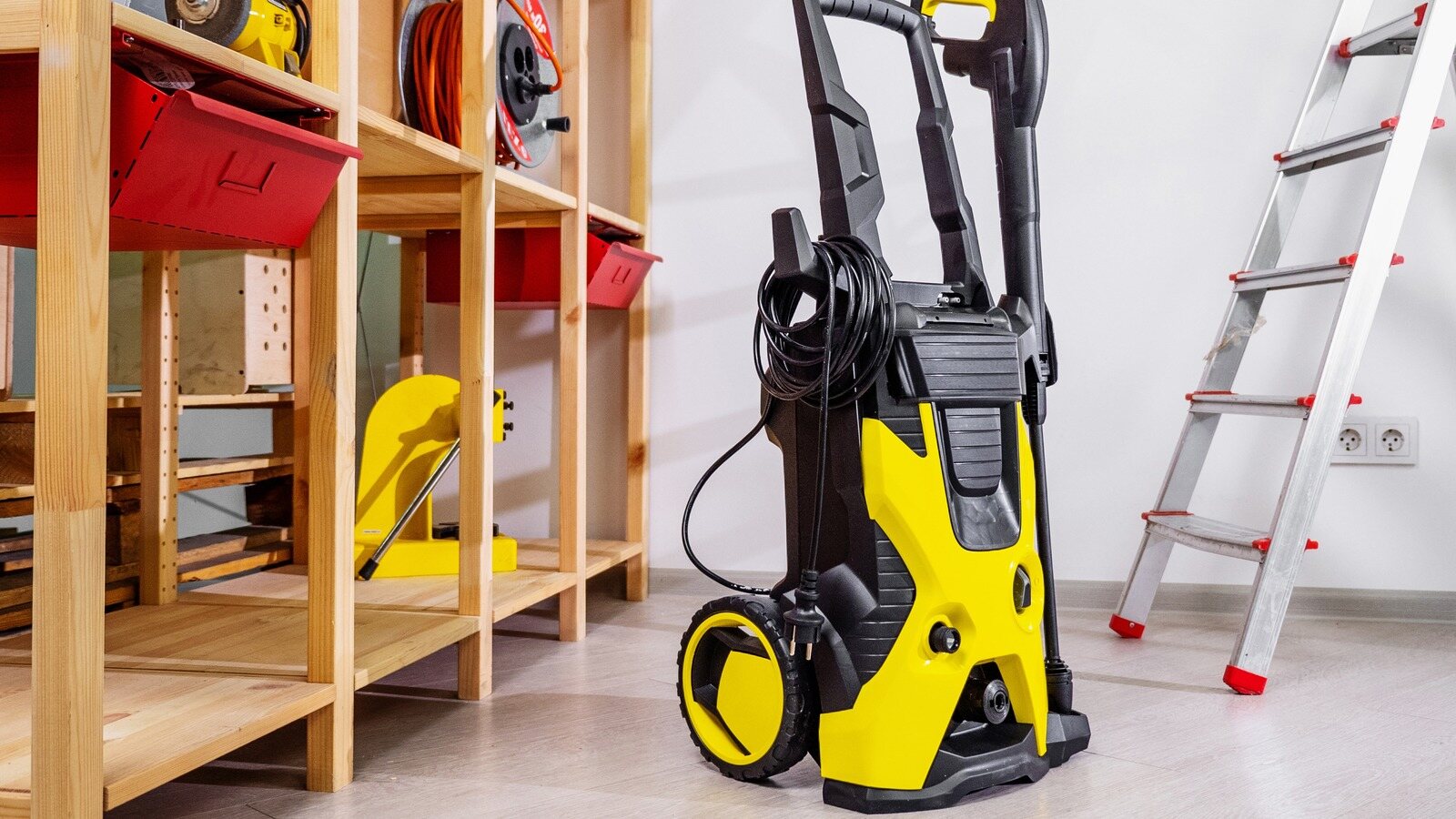
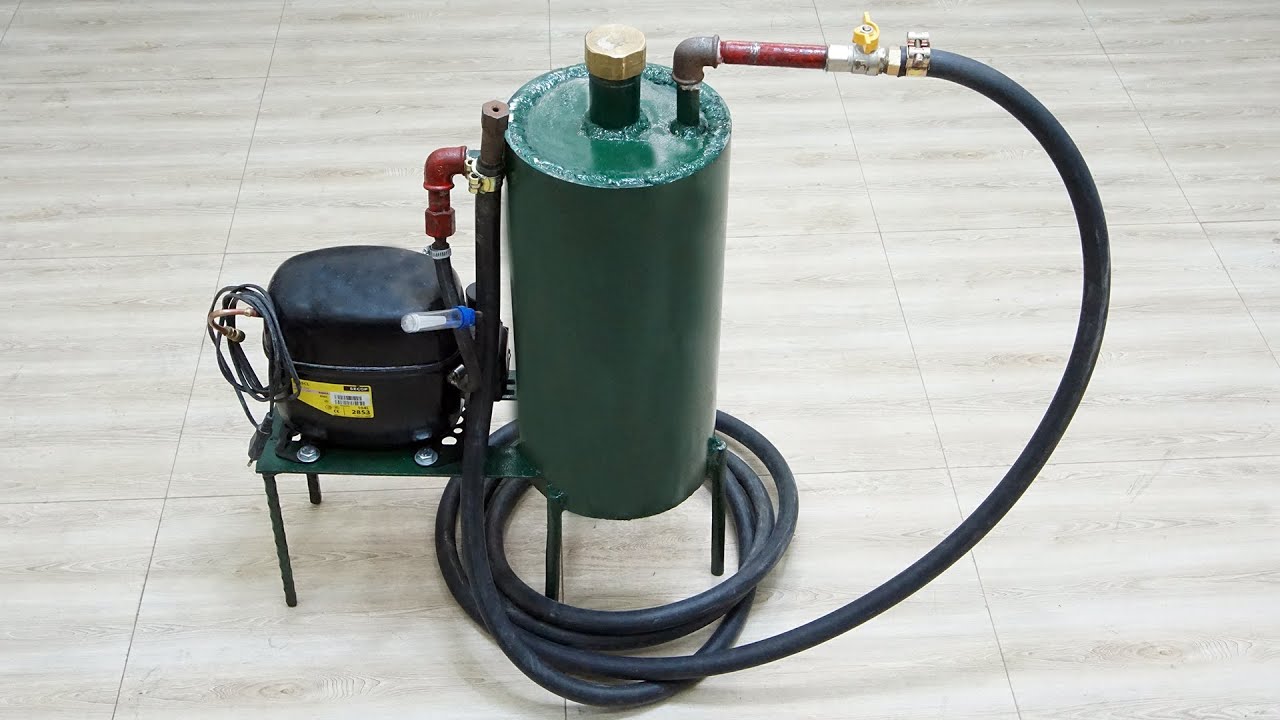
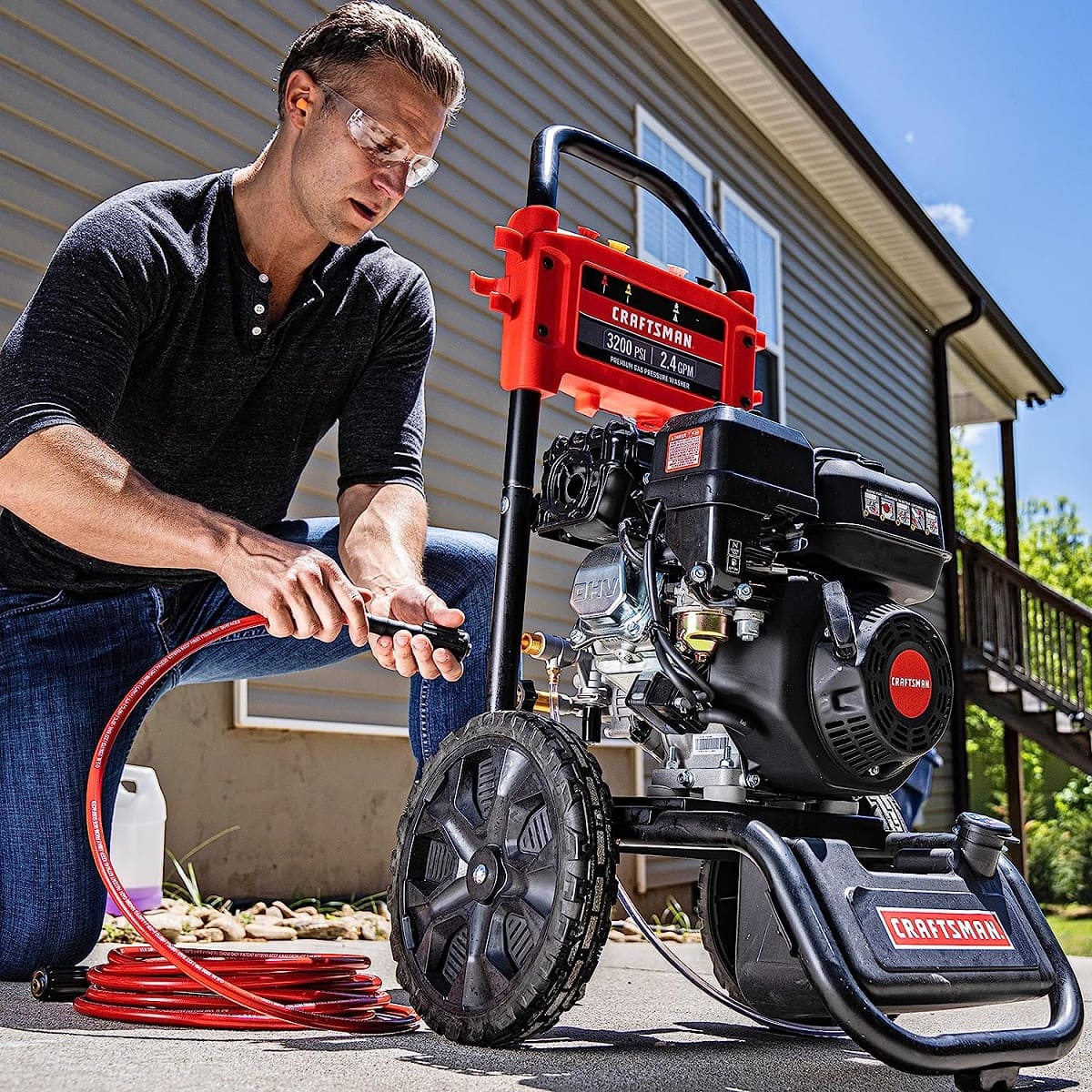
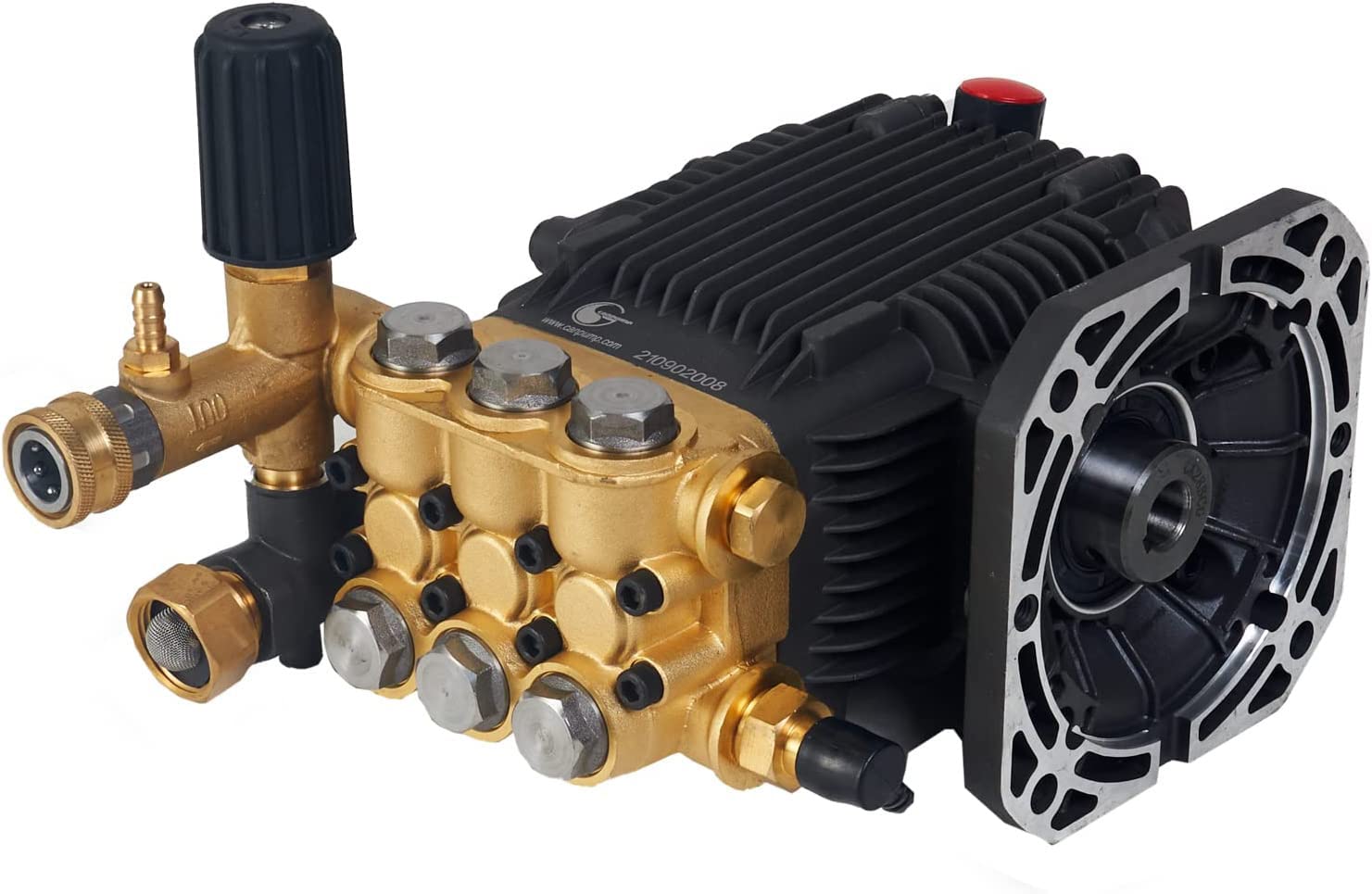
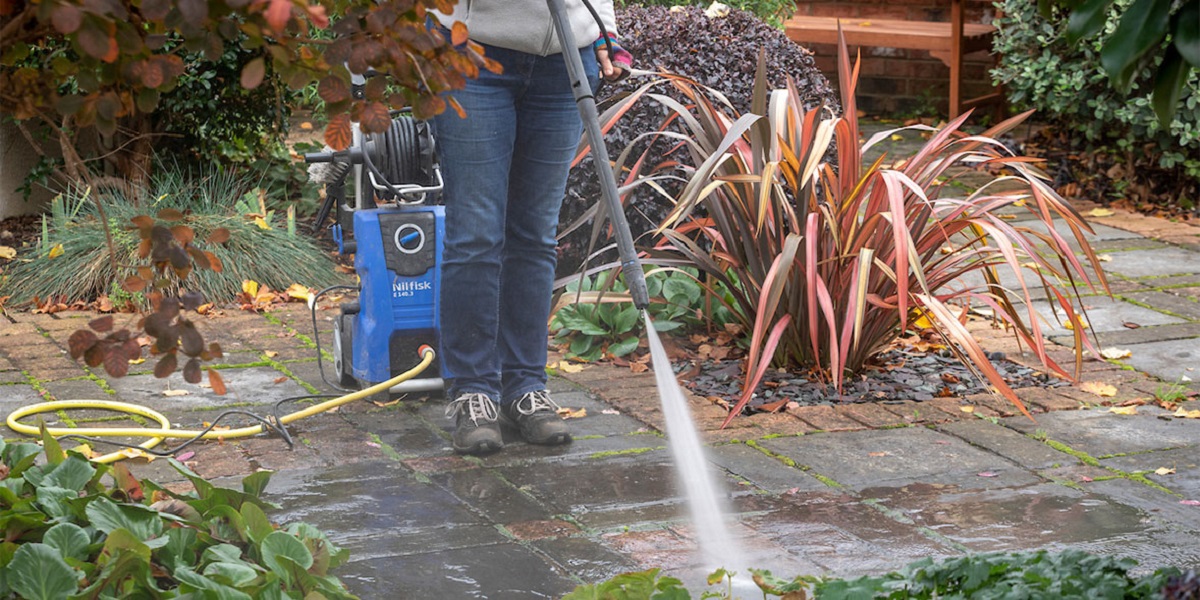
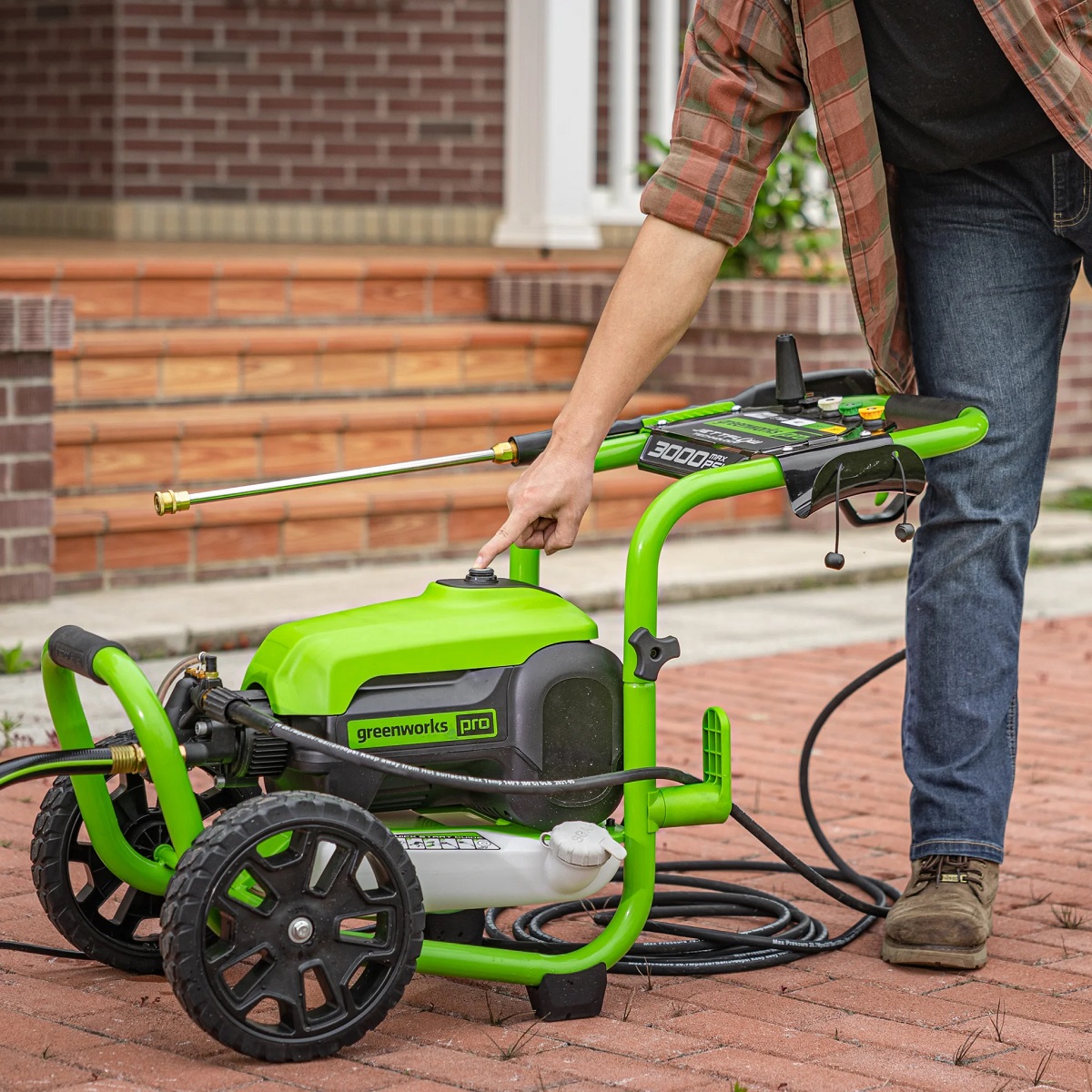
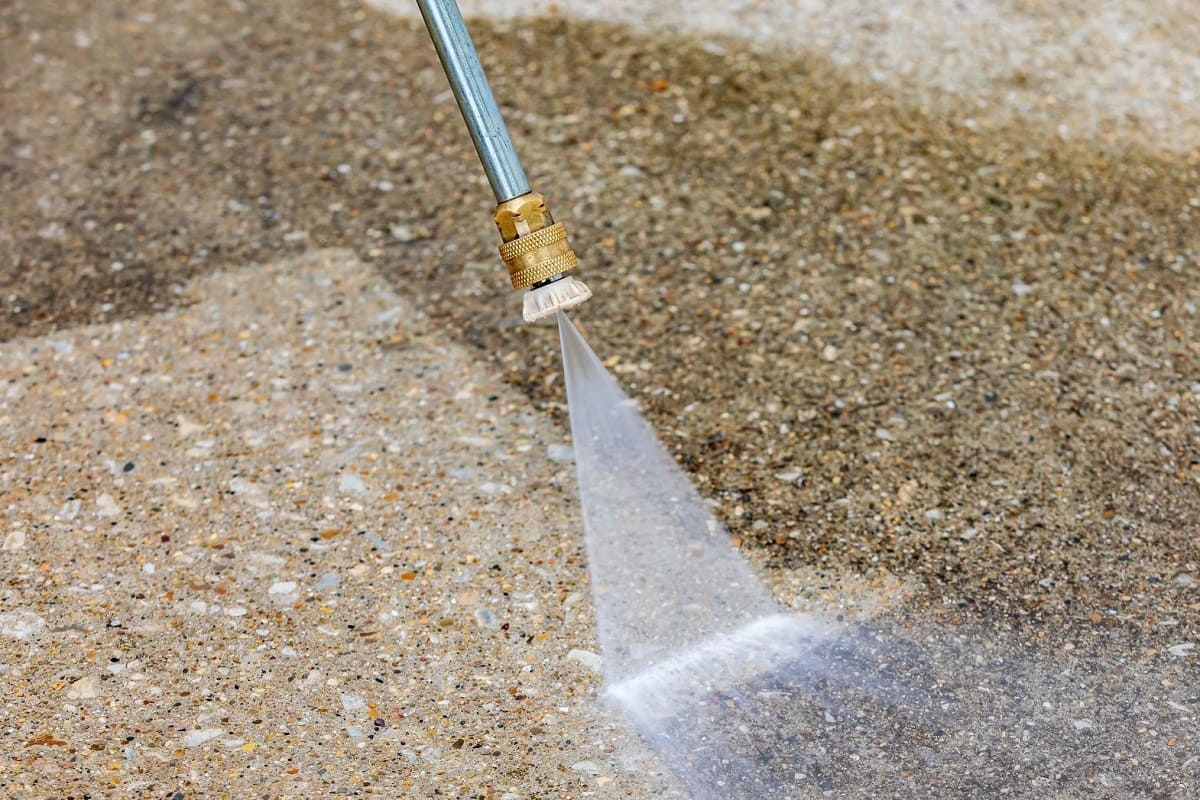
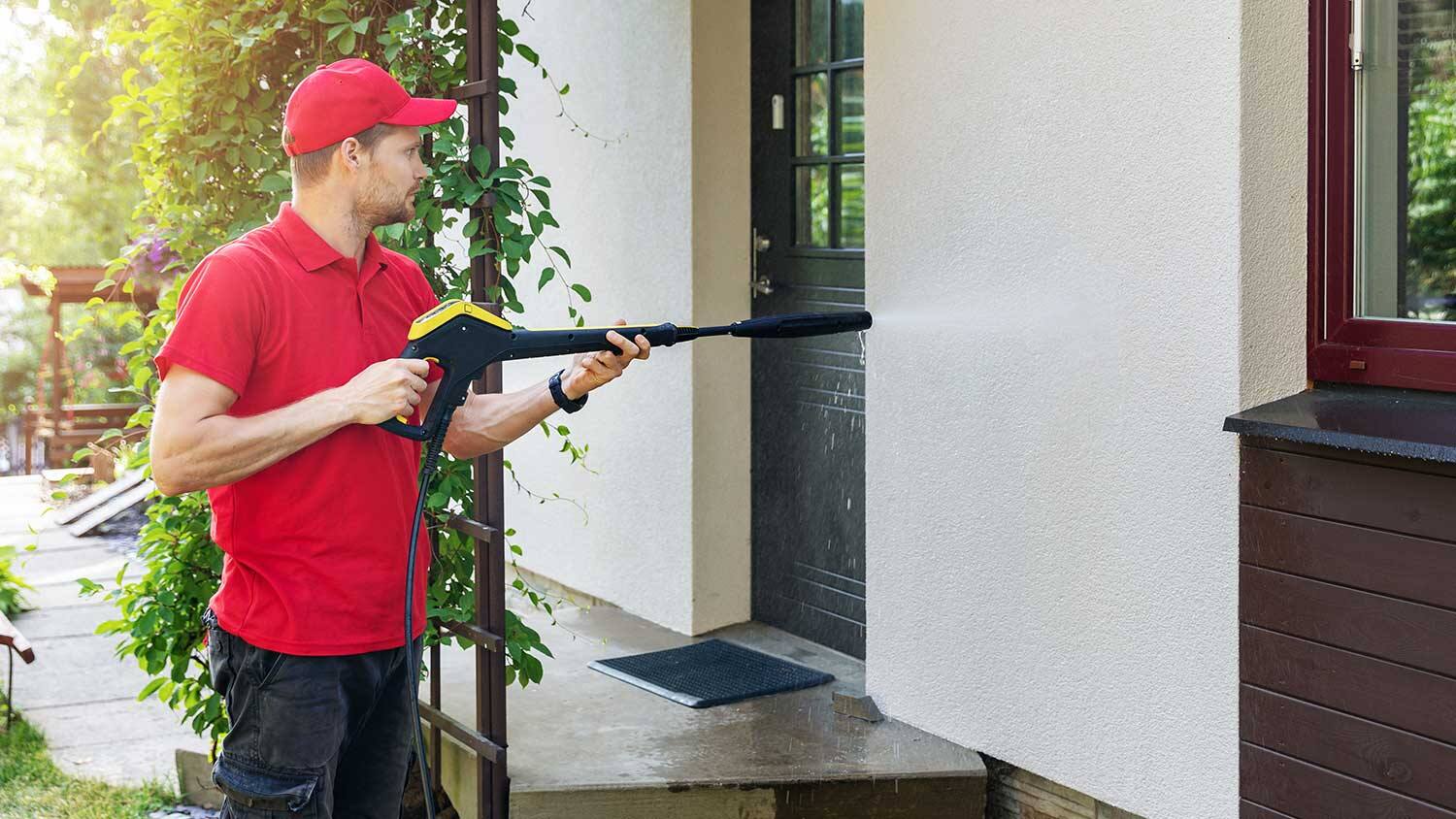
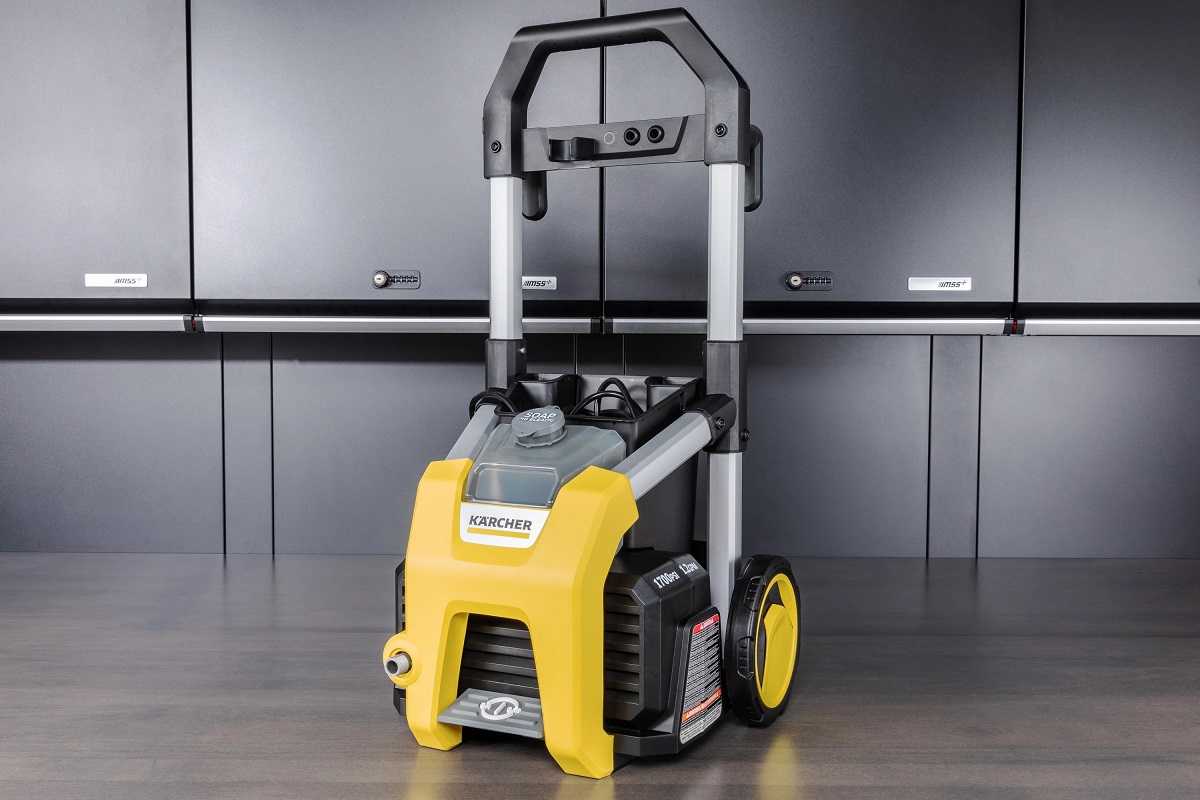
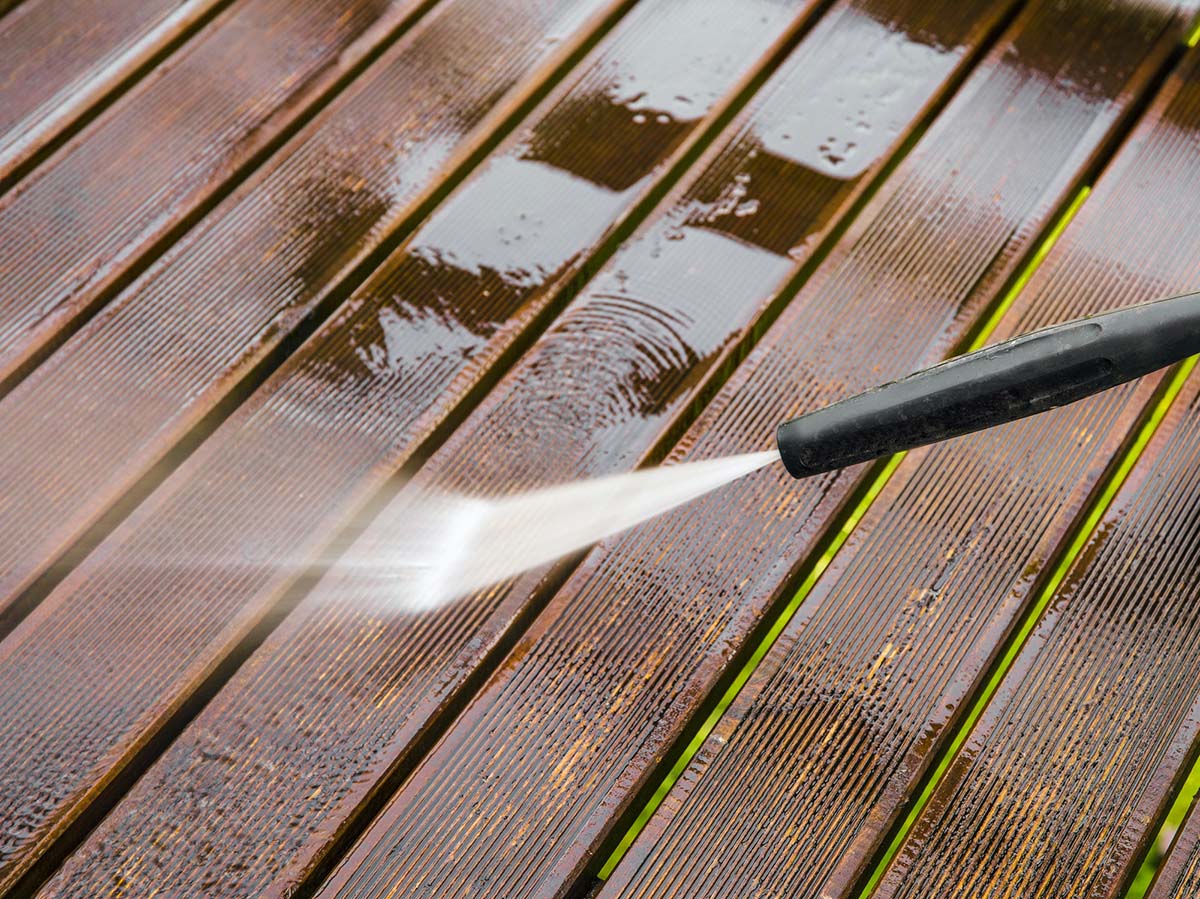
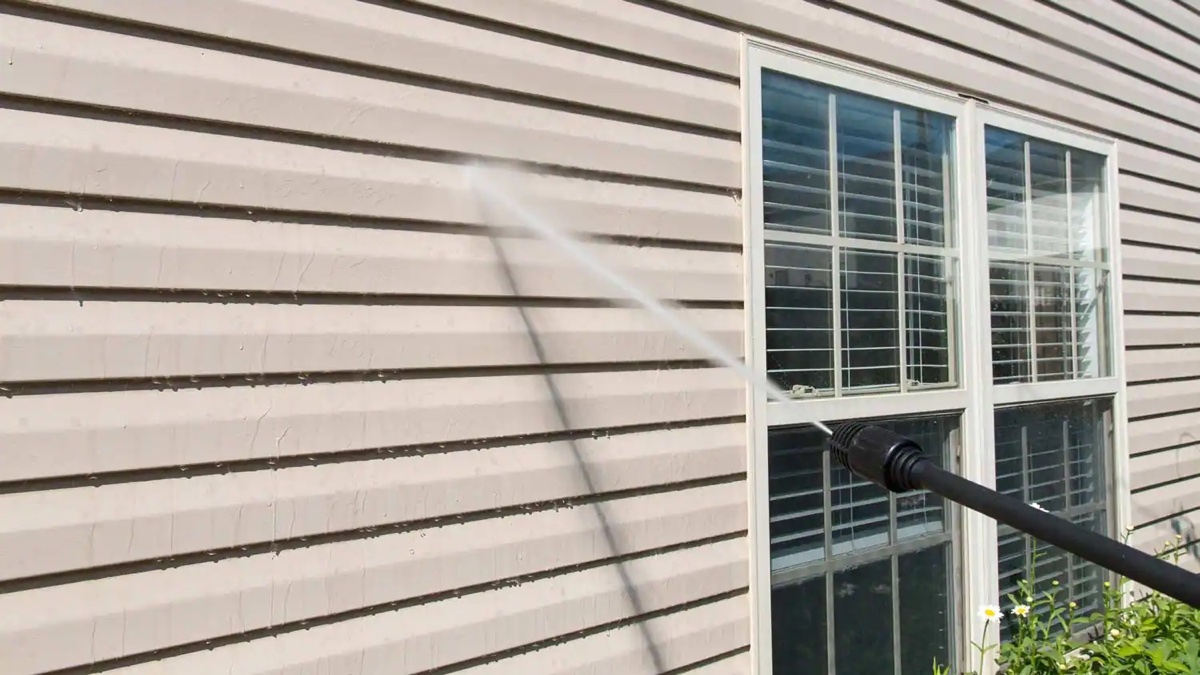
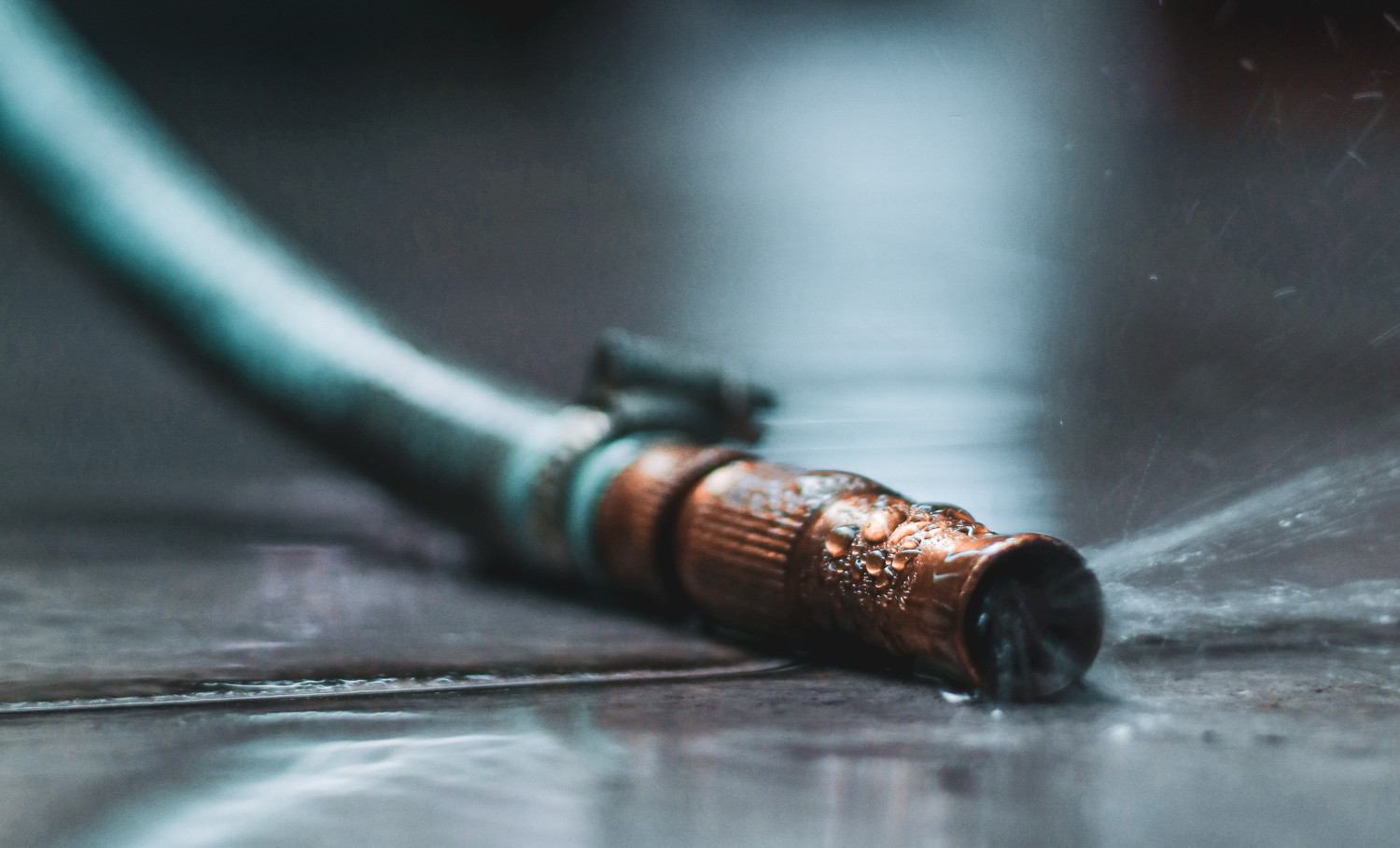
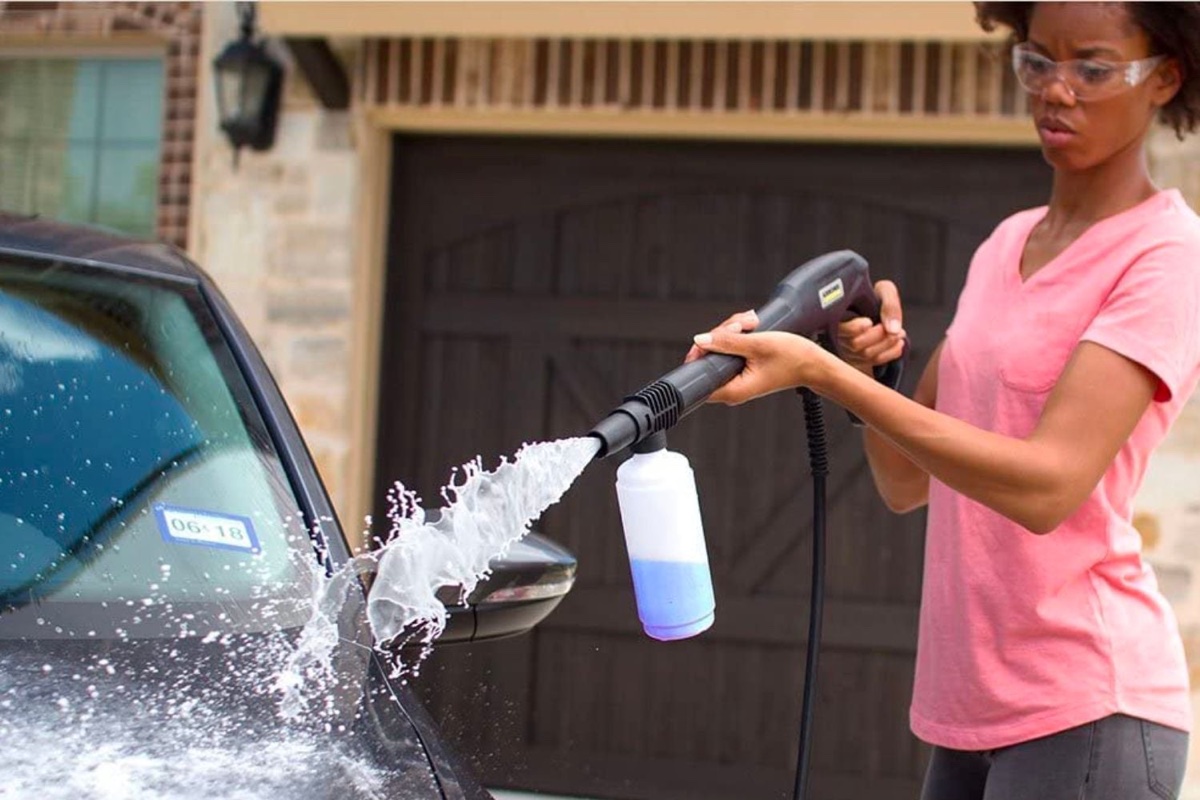

0 thoughts on “How To Choose A Pressure Washer”